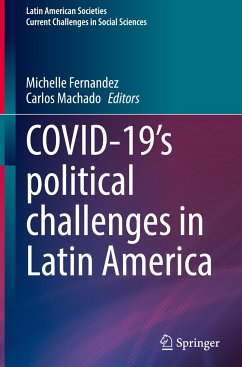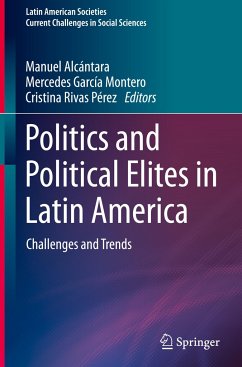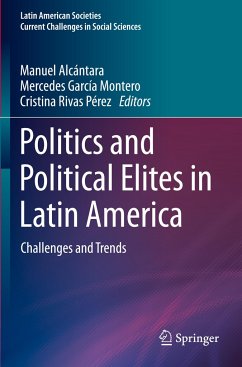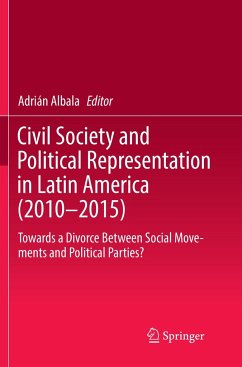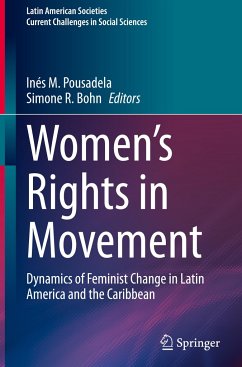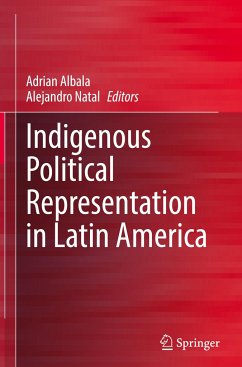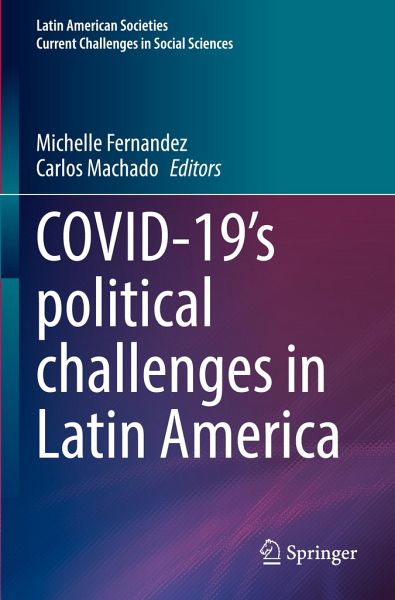
COVID-19's political challenges in Latin America
Versandkostenfrei!
Versandfertig in 6-10 Tagen
91,99 €
inkl. MwSt.

PAYBACK Punkte
46 °P sammeln!
This book analyzes how COVID-19 impacted politics and how politics shaped the response to the pandemic in Latin America, the region which has become the epicenter of the global health crisis started in China. The volume brings together studies carried out in eight countries of the region - Argentina, Brazil, Chile, Colombia, Ecuador, Mexico, Nicaragua and Uruguay - and show how the impacts and outcomes varied a lot across the region depending on the political processes under way in each country in the years preceding the pandemic and on the political responses adopted by each government to dea...
This book analyzes how COVID-19 impacted politics and how politics shaped the response to the pandemic in Latin America, the region which has become the epicenter of the global health crisis started in China. The volume brings together studies carried out in eight countries of the region - Argentina, Brazil, Chile, Colombia, Ecuador, Mexico, Nicaragua and Uruguay - and show how the impacts and outcomes varied a lot across the region depending on the political processes under way in each country in the years preceding the pandemic and on the political responses adopted by each government to deal with the health crisis.
The volume is divided into four parts, each one dedicated to a specific dimension of the relation between politics and COVID-19 in Latin America. The first part is dedicated to denialism, and presents three case studies of governments that denied the importance of the health crisis: Brazil, Mexico and Nicaragua. The second part takes Uruguay and Colombia as two opposite examples of successful and failed state action against COVID-19. The third part analyzes how social movements faced the pandemic in Brazil and Chile. Finally, the fourth part analyzes how public opinion reacted to political responses to COVID-19 in four countries: Argentina, Brazil, Ecuador and Mexico.
COVID-19's Political Challenges in Latin America will be a valuable resource for political scientists, sociologists and other social scientists interested in understanding how the pandemic affected politics and how politics affected the fight against the biggest health crisis faced by humanity in the last hundred years.
The volume is divided into four parts, each one dedicated to a specific dimension of the relation between politics and COVID-19 in Latin America. The first part is dedicated to denialism, and presents three case studies of governments that denied the importance of the health crisis: Brazil, Mexico and Nicaragua. The second part takes Uruguay and Colombia as two opposite examples of successful and failed state action against COVID-19. The third part analyzes how social movements faced the pandemic in Brazil and Chile. Finally, the fourth part analyzes how public opinion reacted to political responses to COVID-19 in four countries: Argentina, Brazil, Ecuador and Mexico.
COVID-19's Political Challenges in Latin America will be a valuable resource for political scientists, sociologists and other social scientists interested in understanding how the pandemic affected politics and how politics affected the fight against the biggest health crisis faced by humanity in the last hundred years.





